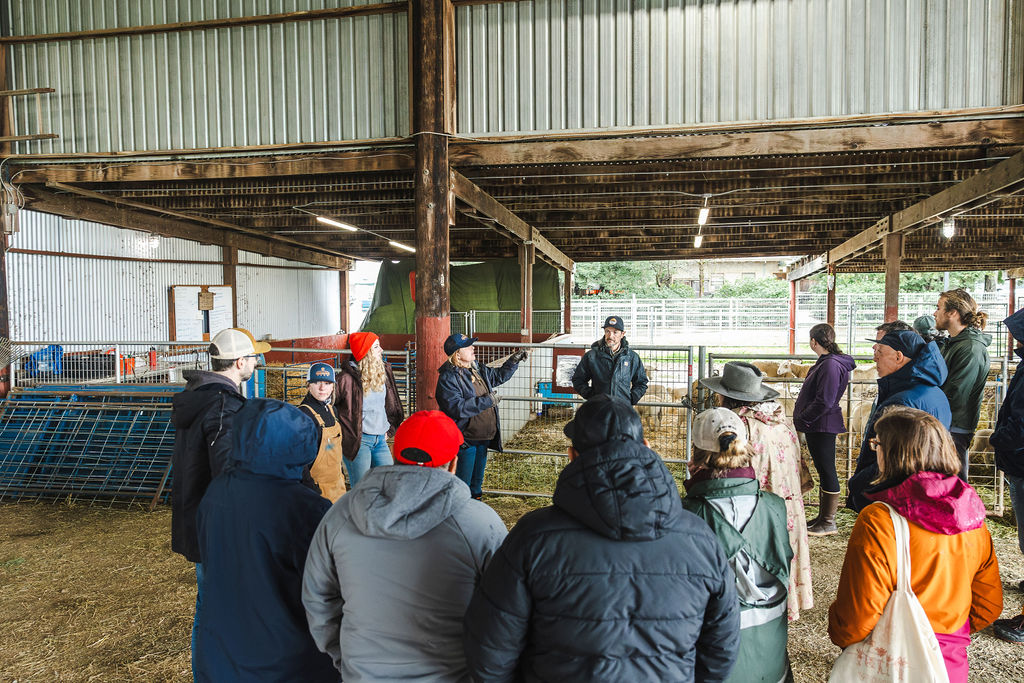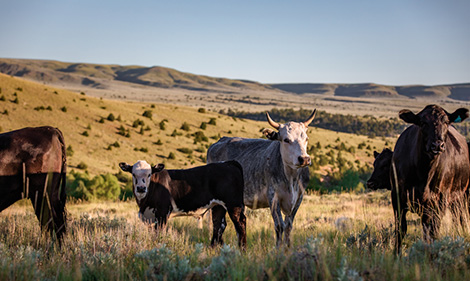Small Farm Conference continues to provide needed education
Since the beginning of production agriculture, the vast majority of farming operations have consisted of small family farms. That’s true today as well, as these farms comprise nearly 90% of all the farms in the country, according to the U.S. Department of Agriculture.
Providing the education needed to help California’s small farms thrive is the top priority for the Community Alliance with Family Farmers, a nonprofit that provides information and ideas that will allow small farmers to succeed, said Evan Wiig, CAFF’s director of membership and communications. “By equipping small-farm operators with the tools and education they need, and by working to promote programs that really benefit small farms, such as more farmers markets and making direct-to-consumer sales easier, we can help them be successful,” Wiig said.
CAFF’s major initiative each year is its Small Farm Conference, sponsored in part by Farm Credit associations doing business in California. The 36th annual conference was held earlier this year and drew more than 1,200 small farmers from around the state to the hybrid event, consisting of 60 online workshops as well as 10 in-person gatherings from San Diego to Humboldt County where people could network and exchange ideas.
Wiig said sponsorships such as Farm Credit’s support are vital for nonprofits such as his. “We could not put on the conference without sponsorships. That’s the short of it,” Wiig said. “We strive to make sure our education is accessible to all farmers, including new farmers, students and farmworkers. To make the conference accessible to those people, we have to keep our ticket prices down. We really appreciate everything Farm Credit does. They’re still our rainmaker sponsorship. They really do make it rain and we appreciate it.”
Kevin Ralph, California State President for AgWest Farm Credit, said providing ongoing education to farmers and ranchers is a top priority for California’s Farm Credit associations.
“Each year, Farm Credit supports nonprofits focusing on ag education because educational opportunities offered by nonprofits such as CAFF are vitally important to the success of agriculture,” Ralph said. “Helping small farmers is something we should all support and keeping them up to date on the latest tools and techniques is a great way to ensure that they continue to thrive.”

Anthony Blondin, center, the coordinator of farm operations at Santa Rosa Junior
College, answers questions from participants during the Small Farm Conference in-person gathering
earlier this year. Photo courtesy of Kelsey Joy Photography.
Farm Credit organizations members AgWest Farm Credit, CoBank, Colusa-Glenn Farm Credit and Fresno Madera Farm Credit are proud supporters of CAFF. The organizations are part of the nationwide Farm Credit System – the largest provider of credit to U.S. agriculture.
The conference was abruptly transformed in 2021 into a virtual conference due to the pandemic, which turned out to be wildly popular since by definition small farmers often have a difficult time leaving their farms for four days and bearing the travel expenses to get to a central location.
“We’re hearing from the farmers that they really appreciate this format,” Wiig said. “Attendees were posting on Instagram pictures of themselves tuning into the conference while doing all sorts of things on their farms. It was cool to see that we’re meeting them where they’re at and glad to see that they’re getting a lot out of it.”
Workshops this year ranged from marketing a small farm to business administration to crop-specific workshops for commodities including strawberries and wine grapes. It also included innovative ways to do sales, such as online sales and selling to schools and hospitals.
Wiig said programs are developed after a listening tour CAFF’s staff takes each fall to learn about what problems were keeping farmers up at night and where they should focus advocacy efforts in Sacramento.
“A lot of the things that we’ve been hearing about for a long time continue to rise to the top – access to water and land, adaptation to climate change, dealing with wildfires, floods and droughts – the continued craziness of farming in California,” Wiig said.
“But we also saw that because they are small operations, they struggle to access equipment and markets. We want to make sure smaller and new farmers have access to capital, processing equipment and infrastructure. We’re looking at things like helping start farm cooperatives and distribution collaboratives. We’re also cosponsoring a bill for tool-sharing programs so groups can get access to equipment they couldn’t otherwise afford on their own,” he said.
Keith Hesterberg, President and CEO of Fresno Madera Farm Credit, said it’s encouraging to see nonprofits sponsored by Farm Credit continue to come up with new ideas to promote agriculture. “CAFF does a great job of understanding the needs of small farmers and developing support systems to help them,” Hesterberg said. “We are proud that our support makes a difference and look forward to continuing to support CAFF and our state’s small farmers.”
Next year’s conference is tentatively scheduled for February 23-28, and Wiig said after reviewing feedback and evaluations from participants, one thing CAFF will try to do is expand the local gatherings. “Clearly, there’s a desire to add more in-person workshops and field days. This year’s field days sold out within days and it’s clear that people want to get onto other farms and see how they do things. We want to make that a central focus of the conference going forward,” he said.
About Farm Credit
AgWest Farm Credit, American AgCredit, CoBank and Fresno Madera Farm Credit are cooperatively owned lending institutions providing agriculture and rural communities with a dependable source of credit. For more than 100 years, the Farm Credit System has specialized in financing farmers, ranchers, farmer-owned cooperatives, rural utilities and agribusinesses. Farm Credit offers a broad range of loan products and financial services, including long-term real estate loans, operating lines of credit, equipment and facility loans, cash management and appraisal and leasing services…everything a “growing” business needs. For more information, visit www.farmcreditalliance.com.
About CAFF
The Community Alliance with Family Farmers builds sustainable food and farming systems through policy advocacy and on-the-ground programs that create more resilient family farms, communities and ecosystems. The California Small Farm Conference convenes farmers and ag advocates to share resources, trade best practices, learn and collectively advocate for family farms in their community. For more information, visit https://caff.org.
